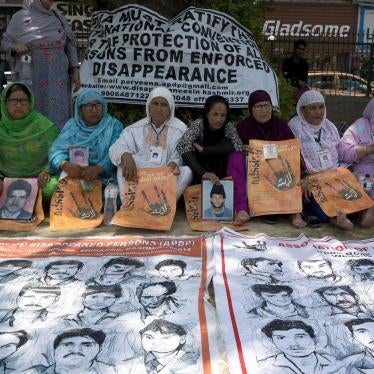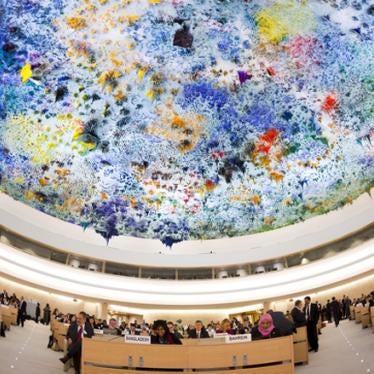A 13-year-old boy is allegedly tortured to death by security forces on suspicion that he was part of an anti-government protest. His broken body leads to anger and further protests. The government, claiming that the protests are being fuelled by foreign terrorists and that the demonstrations are not peaceful at all, engages in further crackdowns. The government's false claims turn into a self-fulfilling prophecy as civilians increasingly resort to violence, saying that they need to protect their women and children and stop the repression.
Sound familiar? Except that this is not Kashmir in the early 1990s, but Syria in 2011. Even as many write eloquently of the Arab Spring, the power of people's protest against repressive regimes, in Syria, government forces continue what is often described as a scorched-earth campaign. Syrian soldiers who deserted claim they could not stomach the atrocities they were ordered to commit.
The Syrian government insists that the protests are fuelled by "armed terrorist gangs". Although independent research is difficult because of limited access, human rights groups including Human Rights Watch found that the overwhelming majority of protests have been peaceful. Some civilians took up arms and some soldiers defected and defended the protesters, but these were limited incidents, often in reaction to shootings by security forces.
India, along with China and Russia, however, have accepted the Syrian government's claims at face value, allowing Syrian President Bashar al-Assad to ignore international calls for restraint.
The protests were sparked from Daraa, in southern Syria, where security forces detained and tortured 15 young boys accused of painting anti-government graffiti slogans. On March 18, following Friday prayers, several thousand protesters marched through the streets calling for the release of the children and greater political freedom, and accusing government officials of corruption. Security forces initially used water cannons and teargas against the protesters, and then opened fire with live ammunition, killing at least four people. This led to further protests, with more and more people joining the demonstrations and being met with bullets.
According to lists compiled by human rights groups, security forces have killed at least 1,200 protesters and bystanders. Syrian state media also report the death of 300 security personnel but without specifying the exact circumstances. Thousands have been detained and tens of thousands displaced.
India should know better than to simply accept Syria's claims. India understands from its own experience that human rights violations perpetuate a cycle of violence. As atrocities spiral, many are likely to take to vengeful retaliation because of the abuses they suffer. In Kashmir, when unarmed protesters in the early 1990s were treated with brutality, it only ceded space to Islamist extremists eager to exploit the sentiments of the agitated youth and recruit them for militancy. This led to widespread suffering as civilians were caught between armed militants and government forces, with both responsible for abuses.
Syria may face a similar predicament if the international community does not act to prevent further violence against protesters. As the United Nations Security Council (UNSC) mulls over a resolution, inaction is winning out over meaningful action against Syria. Among those members states advocating silence on Syria, a range of reasons are given, including suspicion about the West's aversion to a pro-Iran regime, the risk of losing control over Hamas or Hezbollah, and the current Nato actions in Libya.
Yet again, nations have to decide whether they wish to side with an abusive government or support an oppressed population. Many Indian policymakers have long criticised the US for warmly embracing dictatorships in West Asia and North Africa for political and economic benefit without regard for those living under these governments.
But pointing to flawed Washington policy is not enough. As an emerging global power that aspires to a permanent seat in the UNSC, New Delhi needs to find its own voice - and one that speaks for people and their aspirations. It can no longer stick to the comfort of "good relations" with a particular government, when those rulers are despised by their own citizens and have engaged in widespread human rights violations.
Earlier this year, states outraged by the abuses in Syria rightfully encouraged Damascus to drop out of the race for membership of the Human Rights Council. At that time, India's ambassador to the United Nations, Hardeep Singh Puri, said: "The point that needs to be made is that you cannot keep this score of 120 killed every Friday and be on the Human Rights Council". India needs to continue approaching its Syria policy from that human rights perspective.
Whatever the outcome of the brutal crackdown in Syria, those who have stood up for their basic rights will not look at their government the same way again. It is not only morally right for India to recognise these hopes, it is a prudent long-term investment. People will remember those that backed their struggles.
Meenakshi Ganguly is the South Asia director for Human Rights Watch.









